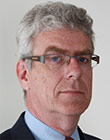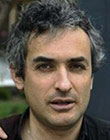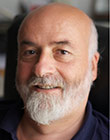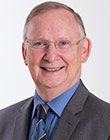Journals have a responsibility to communicate clearly in ways that benefit patients
Choice of language can impede access to medicines both for the treatment of pain and opioid dependence. Referring to a person as a “substance abuser” rather than “a person with substance use disorder” evokes stigma and there is evidence that it reduces patients’ access to appropriate treatment.
Moreover, imprecise terminology may result in misunderstanding of the nature of pain treatment and the management of substance use disorder. In turn, politicians and administrators may establish irrational public health policies, and patients may decide not to take their medicines.
In many countries the barriers to accessing pain treatment and treatment of opioid dependence are huge. Yet non-medical use of psychoactive substances and untreated moderate and severe pain are considered public health priorities. Clear, unambiguous, non-stigmatising terminology is recommended by the World Health Organization (WHO) as one way to ensure access to controlled medicines.
Everyone should use appropriate terminology, including patients, governments, and international bodies. Yet journals read by healthcare professionals have a particular responsibility to communicate clearly in ways that benefit patients. Indeed, we consider the use of appropriate terminology in scientific journals of utmost importance to enhancing the quality and clarity of scientific communication and improving patient access to medicines used to treat both dependence and pain.
The call to abandon the use of terminology that can stigmatise is not new, but most medical journals continue to accept manuscripts with inappropriate wording. Efforts to use appropriate terminology should be widespread and extend to all patients who need controlled medicines, including patients with pain, in palliative care, or with substance use disorder. Moreover, the focus should be on a range of negative wording. In this article we note only the most obvious.
The word “drug” is ambiguous because it could mean “medication” or “non-medically used psychoactive substance”. Most parents and politicians do not like children to use “drugs,” but they are in favour of them receiving “medications” when ill. Therefore, the ambiguity of “drug” could hamper access to controlled (psychoactive) medicines in cases where their use is fully rational, and the unambiguous terms “medication” (or “medicine”) and “psychoactive substance” should be used instead.
Doctors and medical journals should use “person first” language—for example, “person with substance use disorder” instead of language that defines people by an illness, such as “addict.” Two other unacceptable examples are “abuse” and “misuse” because these express judgment. The alternatives are, for instance, “non-medical use” or just “use.”
“Physical dependence” for describing tolerance and withdrawal is also not acceptable language because it suggests that this is true dependence, but does not meet the ICD-10 diagnostic criteria for dependence, which includes at least one psychological component.
Also, if used in a medical context, the term “narcotic”: this is a legal term from the Single Convention on Narcotic Drugs, but it does not accurately represent the character of psychoactive substances, which can also be stimulants—such as cocaine.
Finally, the terms “substitution treatment” or “medication assisted treatment” ignore that this treatment is based on medicines that are proven to be effective. This may lead to government policies that exclude pharmacological treatment for substance use disorder. For instance, in some countries evidence based treatment with opioid medicines is restricted or prohibited by law, and in other countries judges withhold treatment to prisoners—for example, in Russia, the United States, and Germany, to mention a few. “Opioid agonist treatment” or just “pharmacological treatment” should be used instead.
Further explanation and alternatives can be found elsewhere. On behalf of our organisations, we call on all medical journals to require that manuscripts use neutral, respectful, and unambiguous language and to accept manuscripts only after the elimination of inappropriate wording.
 Willem Scholten, board member, International Doctors for Healthier Drug Policies.
Willem Scholten, board member, International Doctors for Healthier Drug Policies.
 Olivier Simon, president, Swiss Romandy College for Addiction Medicine; board member, Swiss Society of Addiction Medicine.
Olivier Simon, president, Swiss Romandy College for Addiction Medicine; board member, Swiss Society of Addiction Medicine.
 Icro Maremmani, president, World Federation for the Treatment of Opioid Dependence.
Icro Maremmani, president, World Federation for the Treatment of Opioid Dependence.
 Lukas Radbruch, president, International Association for Hospice and Palliative Care.
Lukas Radbruch, president, International Association for Hospice and Palliative Care.
 Chris Wells, president, European Pain Federation (EFIC).
Chris Wells, president, European Pain Federation (EFIC).
Declaration of interest:
WS provides consulting services as an independent consultant on regulation of and policies related to psychoactive substances. Examples of these include conducting workshops on availability of pain management, providing an overview of importation and exportation rules, providing information on controlled substance policies, the review of cannabis, and the application of the international nonproprietary name. This has included work for the World Health Organization, Pinney Associates, Jazz Pharmaceuticals, Grünenthal, Mundipharma, and DrugScience. He is also a member of the expert group on framework and support measures for opioid dependence treatment, including the prescription of agonist medicines, of the Pompidou Group of the Council of Europe.
OS is head of the Addictology Division, Service of Community Psychiatry, Department of Psychiatry, Lausanne University Hospital (CHUV), Switzerland. He is president of the CoRoMA (Collège romand de médecine de l’addiction), an inter-regional association that is funded by the Federal Office of Public Health (FOPH), and member of the board of the Swiss Society of Addiction Medicine (SSAM). OS is the coordinator of the Pompidou Group’s (Council of Europe) expert group on framework and support measures for opioid dependence treatment, including the prescription of agonist medicines.
IM is professor of addiction medicine at University of Pisa, Italy, and chief of the Vincent P Dole Dual Diagnosis Unit at Santa Chiara University Hospital. He is past president of the Italian Society of Addiction Medicine (SITD), president of the European Opiate Addiction Treatment Association (EUROPAD), and treasurer of the World Association on Dual Disorder (WADD). He served as a board member for Indivior, Molteni, Mundipharma, D&A Pharma, Lundbeck, and CT sanremo.
LR serves as chair of the board of directors of the International Association for Hospice and Palliative Care (IAHPC) and as president of the German Association of Palliative Medicine.
CW is president of the European Pain Federation (EFIC). Now retired from clinical practice, he does some consultancy and speaker work for Grunenthal, GSK, and Invidior. None of these impinge on the submission in any way. He is a member of the EFIC task force on cancer pain.
